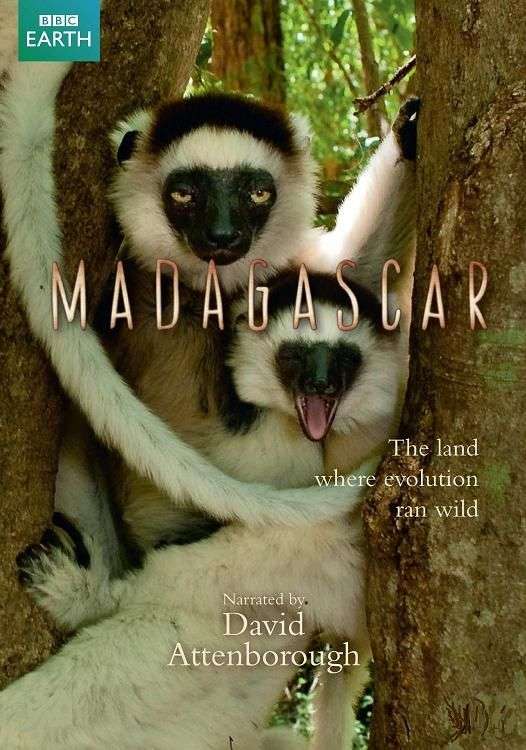
Sir David Attenborough narra esse documetário fascinante sobre a natureza e a variedade de espécies diferentes que vivem na ilha de Madagascar.
Madagascar é uma terra de montanhas enevoadas, as florestas tropicais e desertos espinhosos - e lar de animais selvagens estranhos, mais do que é encontrado em nenhum outro lugar na Terra. Usando a mais recente tecnologia de filmagem, a BBC Natural History capta a fauna diversificada e rara que habita esta terra incrível, algumas espécies filmadas pela primeira vez, e traz histórias surpreendentes do símbolo de resistência da ilha, lêmures, bem como criaturas menos familiar. Há sapos que por sua vez variam do marrom ao amarelo brilhante; vespas que arrancam girinos de árvores, ninhos, peixes que nadam de cabeça para baixo e a vida romântica do menor camaleão do mundo.
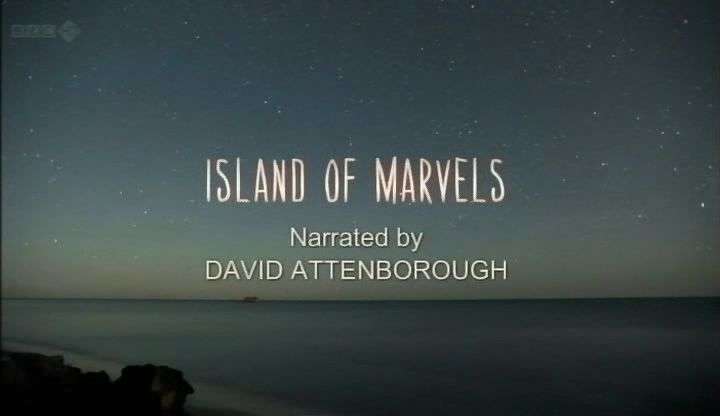
In this episode, we reveal the island's most bizarre and dramatic places, and the unique wildlife that has made its home in each, thanks to the geology and isolation of this Alice-in-Wonderland world. The stars are the lemurs, Madagascar's own primates. A family of indris leaps like gymnasts among rainforest trees; and crowned lemurs scamper around Madagascar's weirdest landscape, the razor-sharp limestone tsingy, which looks like something from another planet. And sifakas, ghostly white lemurs, move like ballerinas across the forest floor. Madagascar's wildlife is famously strange. Bright red giraffe-necked weevils use their necks to build leaf nests with the complexity of origami. Chameleons stalk the forests, none more intriguing than the pygmy chameleon, the world's smallest reptile, delicately courting a female in its giant world. The fearsome fossa, Madagascar's only big mammal predator, looks for a mate - 15 metres up a tree. And in the southern 'spiny desert', a spider hauls an empty snail shell, 30 times its own weight, up into a bush as a shelter; something never before filmed, and possibly never observed in the wild before. At the end of the episode, we go 'behind the camera', to reveal the challenges of capturing the behaviour of the little-known wildlife of this island. How do you go about filming a rare, secretive lemur that lives in the middle of Madagascar's biggest lake?
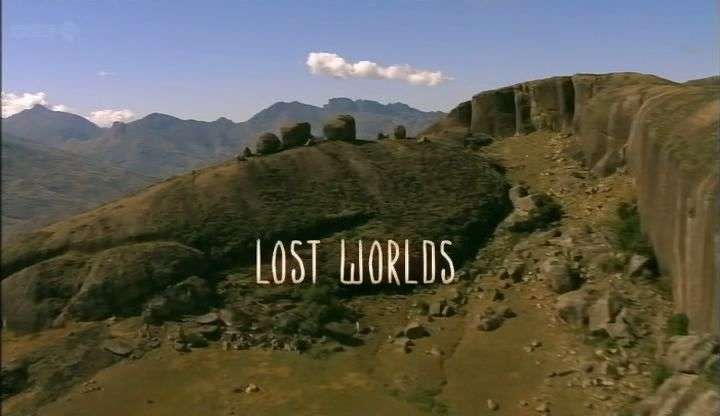
This second episode of the natural history series about one of the most intriguing wild places on Earth, A few troops of ringtailed lemurs have made their home at the top of the coldest mountain on the island, in the Andringitra Highlands. To fight the sub-zero temperatures they have developed thick coats, but can only survive the freezing nights by huddling together in rocky crevices. Just a few hundred metres lower, the forests are permanently shrouded in clouds. This is the last sanctuary of the elusive, ghostly white silky sifaka. There are thought to be only 200 of these playful and endearing creatures left. Lower again into the lush rainforests, thickets of 30-metre-high bamboo hide one of Madagascar's most remarkable animals – the golden bamboo lemur, only discovered a few years ago. It's extraordinarily specialised, eating just one species of bamboo: a plant loaded with highly toxic cyanide. Every day they consume 12 times the lethal dose of this poison with no ill effects – no one knows how they can do this. In just a few remote places, luxuriant rainforests reach right down to the Indian Ocean. Big and noisy, strikingly colourful red-ruffed lemurs boss their way around these rich forests, defending fruiting trees from troops of raiding white-faced brown lemurs. Their massive consumption of fruit is vital to the health of these eastern forests, as they are the only way seeds are spread throughout the forest.

This episode focuses on the desert-like west and south of Madagascar. It might not rain there for nine months of the year and some years not at all. To live here, you have to be a specialist. The Verreaux's sifakas lives in the strange "spiny forest" – many of the trees here have savage spikes and some drip toxic chemicals. But this species of lemur is totally at home here – they get all the moisture they need from the plants' hard leaves. Slow-motion filming shows their incredible knack of moving among the dagger-like spines without harming themselves. Among the iconic baobab trees live huge-eyed mouse lemurs – the world's smallest primates – emerging at night to feed on the droppings of fluffy bugs. This is a land where opportunists survive the lean times – the female vasa parrot gets males to feed her by singing loudly to them. Gangs of ring-tailed lemurs bring up their babies through the toughest time of year. But these canny lemurs catch giant flying insects, plucking them from the air. When at last the rains come for a few fleeting weeks, everything changes. Labord's chameleon is the shortest-lived land vertebrate in the world. This striking animal lives just 12 weeks from hatching to adulthood. It spent nine months in an egg and has only three months to pack in the rest of its life – growing to adulthood, fighting off rivals, mating and dying soon afterwards. The challenge for Madagascar's wildlife is not just with the passing seasons. Much of it is under threat from hunting and loss of habitat. David sums up: "We are still unravelling the mysteries of Madagascar's wildlife. How tragic it would be if we lost it before we've even understood it."
legendas AQUI
.: Versão MVGroup 720p :.
Dados:
Technical Spec for HD Video Codec: x264 CABAC Video Bitrate: 4000 Kbps Video Aspect Ratio: 1.777:1 Video Resolution: 1280x720 Audio Codec: AC3 Audio Bitrate: 192 Kbps CBR 48KHz Audio Channels: 2 Run-Time: 59mins Framerate: 25FPS Number of Parts: 3 Part Size: 1.72 GB Source: HDTV Ripped by: JungleBoy

 BBC.Madagascar.1of3.Island.of.Marvels.HDTV.x264.AC3.MVGroup.org.mkv
BBC.Madagascar.1of3.Island.of.Marvels.HDTV.x264.AC3.MVGroup.org.mkv BBC.Madagascar.2of3.Lost.Worlds.HDTV.x264.AC3.MVGroup.mkv
BBC.Madagascar.2of3.Lost.Worlds.HDTV.x264.AC3.MVGroup.mkv BBC.Madagascar.3of3.Land.of.Heat.and.Dust.HDTV.x264.AC3.MVGroup.mkv
BBC.Madagascar.3of3.Land.of.Heat.and.Dust.HDTV.x264.AC3.MVGroup.mkv
Epi.1
Epi.2
Epi.3
.: Versão MVGroup hdtv :.
Info:
BBC Madagascar: Island of Marvels PDTV XviD AC3 [MVGroup]
English | 59mins | XviD | 720x416 | 1632kbps | 25fps | AC3 | 128kbps | 746 MB

http://www.fileserve.com/file/tJD6KPv/Madagascar.1.part1.rar http://www.fileserve.com/file/mEvDSG3/Madagascar.1.part2.rar http://www.fileserve.com/file/s7SFgvr/Madagascar.1.part3.rar http://www.fileserve.com/file/yB4RZMF/Madagascar.2.part1.rar http://www.fileserve.com/file/yas8wyD/Madagascar.2.part2.rar http://www.fileserve.com/file/YNgAFD4/Madagascar.2.part3.rar http://www.fileserve.com/file/7YHRgFx/Land.part1.rar http://www.fileserve.com/file/whP3DH6/Land.part2.rar http://www.fileserve.com/file/YWKmYJD/Land.part3.rar
Segunda Opção: DUBLADO
TVRip  - Animal Planet
- Animal Planet
Canal 69 - Net Brasil
 - Animal Planet
- Animal PlanetCanal 69 - Net Brasil

Episódio 01 - Ilha de Belas Riquezas

Citar
O
grande mistério de Madagascar é como uma ilha pode ter uma flora e uma
fauna tão únicas e diversificadas - um catálogo de espécies que faz com
que até as ilhas Galápagos pareçam insignificantes. O que será que torna
Madagascar tão diferente do resto do mundo? Este primeiro programa
segue as pistas dos animais, plantas e paisagens de Madagascar para
descobrir como foi que o passado da ilha produziu ecossistemas como o
dos picos Tsingy - pedras que isolaram espécies animais em gargantas
fechadas, permitindo que elas evoluíssem de maneira fora do comum.

Código:
http://www.mediafire.com/download.php?u8bde61s15wz95a http://www.mediafire.com/download.php?ubcvjxnd9bsn6f5 http://www.mediafire.com/download.php?7ojbbbhr32ot1fz http://www.mediafire.com/download.php?90043f8dmc98hdc http://www.mediafire.com/download.php?6yfxamssz2laidg

Código:

Episódio 02 - Mundos Perdidos

Citar
Do
lado leste da ilha, montanhas se erguem acima das praias cheias de
palmeiras do Oceano Indico. Nessas terras há chuvas torrenciais durante
praticamente o ano todo - elevadas e inacessíveis, possuem um catálogo
incrível de espécies. Neste episódio, viajamos das mais altas montanhas,
onde há poucas árvores e o frio é intenso, passando pela floresta
tropical até chegar à costa, habitada pelos lêmures de caudas aneladas e
pelos preciosos geckos. O que fez com que essa estreita faixa da ilha
seja tão cheia de vida?

Código:
http://www.mediafire.com/download.php?iax3y5dvksuw83k http://www.mediafire.com/download.php?of3jswiq5w9h6a6 http://www.mediafire.com/download.php?4r2cirdciqi1r1x http://www.mediafire.com/download.php?w6fqvq44w5xirq3 http://www.mediafire.com/download.php?ja70xtje755jc16

Código:

Episódio 03 - Longa Estiagem

Citar
A
parte sul de Madagascar apresenta paisagens extraordinárias - das
florestas formadas por "árvores de cabeça para baixo" aos estranhos
"desertos espinhentos". Em forte contraste com a região leste, esta é
uma parte da ilha extremamente seca durante a maior parte do ano - mas,
ainda assim, rica em vida selvagem. Aqui, só as espécies mais
resistentes e oportunistas sobrevivem - e as estratégias de
sobrevivência são engenhosas. O programa acompanha a longa estação seca
nessa paisagem para ver como a vida perdura enquanto espera pela breve
estação das chuvas.

Código:
http://www.mediafire.com/download.php?a01fc9vyf4tgp3f http://www.mediafire.com/download.php?p84n4a1hczqqziw http://www.mediafire.com/download.php?9pnr9p0aroyafb6 http://www.mediafire.com/download.php?el7lb3tc4hozr9g http://www.mediafire.com/download.php?79psbzcwc3a3p4z

Código:

Crétidos: Docs_pt
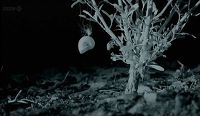


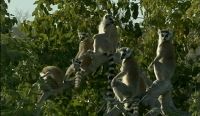
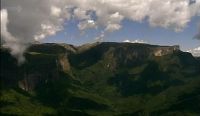
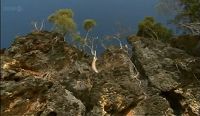
17 comentários:
Valeu, esse documentário é muito bom!
Parabéns pelo site!
valeu, adoro os docs da bbc
Igor boa tarde
você já encontrou as legendas dos episódios 2 e 3 do doc Madagascar?
o documentário é excelente e você é nota 1000000000000000000000000
obrigada
Vera
Obrigado =)
Em relação a legenda, ainda não saiu, quando estiverem disponiveis eu posto
Não Lucas, infelizmente até agora nada =/ ......
Uaii nao tem legenda em português?? =///
qdo sai a legendaa em pt??
Patricia, nem Pt-br e nem Pt-pt não tenho previsão =/
Seu blog é excelente amigo!!
estarei sempre antenado nele... vou esperar ancioso pelas legendas do madagascar, adorei este documentario!!
EDER
E ai...
Não saiu as legendas para os episódeos 2 e 3 ainda não?!
abraços
Faz um tempo q eu n vi. Valeu por ter lembrado...vou olhar se tiver esse final de semana estou postando
É Igor, pelo visto vc não conseguiu as legendas dos outros 2 episodeos...
Cara foi mal.... o blog está crescendo cada vez mais, é muita coisa p/ lembrar =/
Ja saiu o ele dublado e legendado vou postar agora mesmo.
vlw Igor...
Por favor, respostem o ultimo episodio, esta fora do Ar.
Eu amo esse documentario.
É possível você repostar o documentário dublado? Ou então postar o áudio dublado dos 3 episódios?
Postar um comentário